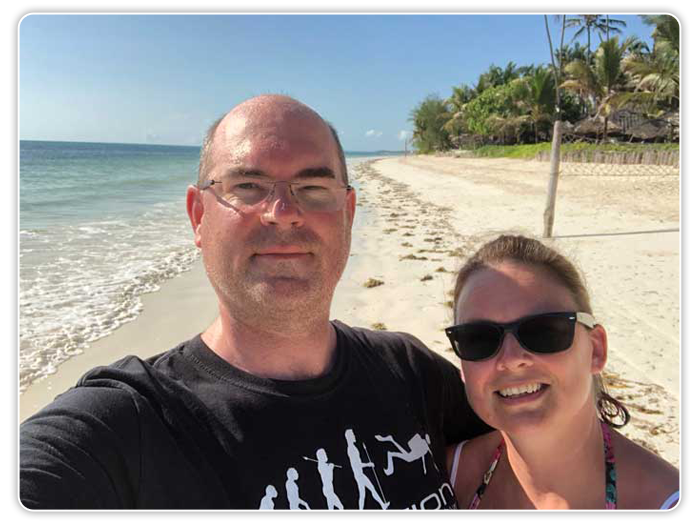Content Creators: How to Write 5,000 Words per Day
If 5,000 words sounds like a crazy high number, you’re not alone.
Most people, even when they’re trying to be super productive in their writing, generally won’t write more than 2,000 words on a good day.
Yet when I put the pedal to the metal, I can do 5,000 or even more.
How do I do it?
First, I take a few moments to relax. Yes, seriously, I sit in my favorite chair, get comfortable, and relax my entire body.
Next, I set my intention to write X number of words in the next X number of hours.
For simplicity, let’s say I want to write 5,000 words in 5 hours. That’s 1,000 words per hour, a perfectly respectable number that yes, YOU can achieve.
Now in my mind’s eye I see myself after I’ve finished the 5,000 words in 5 hours. I see myself leave my office, give my wife a hug and tell her I did it! I feel the sense of accomplishment at having achieved my goal and the relief that I got the work done. I’ll even see the end result, such people being helped by my articles or sales being made or whatever my goal is with the writing.
The key here is to not just see myself accomplishing the goal, but to experience what it feels like to have the goal already accomplished. It’s the difference between seeing yourself climbing a ladder and closing your eyes and feeling yourself climb that ladder.
And of course, you can use this technique to accomplish any goal – not just being super productive in your writing.
A few more fast writing tips:
– Don’t edit as you write – just write. You can do your revising and editing later. There are two reasons to write now and edit later: First, editing as you write creates stumbling blocks and disrupts your natural writing flow. Second, editing a day or two later makes for better writing because you have fresh eyes.
– Use outlines to guide your writing. Taking the time to make an outline will actually SAVE you time on your writing project.
– Do your research. Drop in any relevant bits, quotes, stats and so forth right into your outline for fast reference when you’re writing.
– Remove all distractions, or at least as many as possible. You know the drill on this one – close all browser windows, turn your phone off and so forth.
– If you’re more comfortable speaking than writing, do it. Either use the feature on Word that allows you to speak or have someone transcribe your recordings.
– Write every day. Writing skill is like a muscle – the more you use it, the stronger (and faster) it gets.
– Set a timer. If you want to start by writing 500 words per hour, then set a timer for 25 minutes with the goal of writing 250 words. Then repeat the process.
– Take a few minutes to do something completely different. In the above example, you’ll be writing those 500 words in a total of 50 minutes, leaving you 10 minutes to stretch your legs, look out the window and pet the cats before you get back to work. Short breaks can actually make you more productive, especially if you use them to move your body while letting your brain rest.
– Use placeholders. When your goal is to write 5000 words in 5 hours, you’re essentially running a marathon. And while you’re running a marathon, would you stop to check out the café you just passed? Most likely you’d make a note in your mind to come back later. It’s the same thing when you’re writing. If you come to a place where you need a quote or a statistic or a bit of info you don’t have, write “TK*” in that spot to indicate it’s “to come”, and then do it later. Otherwise researching that one bit of info can lead you down an internet rabbit hole, and before you know it an hour has passed with zero writing.
*Why TK for “To Come?” I’m told it’s an old journalist strategy from back in the day when stories were written on typewriters. The TK was easier to pick out at a glance than TC because the TK combination almost never naturally occurs in English. Of course, these days you can also do a Control F to find your TK’s, as well.
– Know your own biology. Some people write better in the morning, some in the evening and so forth. Set aside time to write when you’re at your best.
– Sit up. Slouching leads to fatigue, sore shoulders and fuzzy thinking. Sit up straight in a comfortable position.
– Use focus recordings. If you go to YouTube and type in something like, “Focus Music” you’ll find recordings that provide tones, frequencies or music that can help you to stay focused. If you tend towards ADHD, find recordings specifically for ADHD people.
– Become a faster typist. There are games online to help you with your typing speed so that your fingers can keep up with your mind.
– Invest in a good keyboard. When it comes to keyboards, one type does not suit all. Find a keyboard that allows you to type as fast as possible with as few errors as possible in comfort.
– Don’t know what to write? If your fingers are poised over the keyboard but nothing is happening, then just start writing ANYTHING. Anything at all. Write what you had for breakfast, how annoying the neighbor was yesterday, or the reasons why Star Trek is the greatest show of all time. Once you’ve primed your writing engine, it will be easy to switch over to writing about your topic.
– Stop judging yourself. When a child is handed a box of crayons and a pad of blank paper, magic happens. That child doesn’t worry about how good her work is, she just has fun and creates to her heart’s content. But hand a box of crayons and paper to an adult and 9 times out of 10 they will freeze up like deer caught in the headlights. Writing is no different. If you judge what you write as you write it, then the entire writing process will be as painful as childbirth. Instead, just have fun with it. Write like a kid. Forget about trying to impress anyone with your sophisticated vocabulary and just write.
– Start in the middle. Or the end. Or the second page. Jump in anyplace you like and just start writing.
– Write the introduction last. How can you write an introduction when you don’t know exactly what’s going to be in the piece? Writing an introduction first is difficult because you’re having to consider everything you may (or may not) end up keeping in the article / book / email / whatever. But if you save the intro for last (TK) then you’ll find it’s super easy to write and practically flows out of you with little effort.
– Stop writing in mid-sentence. Are you done writing for the day? Then use this trick for a fast start tomorrow: Stop writing mid-sentence so that you can pick up where you left off. Not only will this give you a running start when you come back to your writing, but it will also allow your mind to percolate and come up with even more ideas overnight.
– Exercise. The more you move your body, the better your mind works. And of course the better your mind works, the easier it can be to write and write fast.
– Change your writing venue. Before Covid, I would sometimes take my laptop to the local coffee house and write like a madman. I don’t know why being in a different place made it easier to write, but it did. It was like my brain was being stimulated by the sounds, sights and people around me. These days I take my laptop outside in good weather, and other times I take it to the kitchen, the den and even the attic.
– Write drunk, edit sober. Feel free to ignore this one if you don’t drink. It sounds like weird advice anyway, right? And yet if you have a drink (I recommend brandy or wine, but not much) and then you write, you’ll find you’re more free with your thoughts and ideas. An alternative is to try something like kava, CBD or gaba, available at your local health food store. These may help you to relax and focus on your work. Results will vary.
– Journal your butt off. If you write in a journal daily, or several times per day, you’ll become more creative. You’ll have more ideas (write then down!) and you’ll become a better writer. The only rule to journaling you need to follow is to do it often. Other than that, writing anything and everything you like, whether it’s chronicling your daily adventures, creating your plans and goals, capturing your thoughts and ideas… anything goes as long as you’re writing.
– Change your thoughts. Instead of thinking, “Oh crap, I have to write 5,000 words today,” try thinking, “Yeah! I get to write my butt off today and I’m going to love every minute of it! Whoo-hoo!” If that sounded sarcastic to you (not intended) then find your own way of thinking that turns writing into something you look forward to.
What This Guy Stumbled Across By Accident Nearly TWENTY YEARS AGO Is Anything But Average.

It's Still Banking Him $25,000 - $35,000 EVERY SINGLE MONTH!
Privacy Policy: We value your privacy. You can unsubscribe from receiving future emails with 1 click at any time.

















